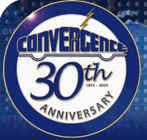New Technology Adoption Strategy Needed, Says Convergence's Roland Berger
 |
TROY, Mich., Oct. 19, 2004 -- Automotive manufacturers and high- tech electronics suppliers need to develop a product development strategy to streamline the flow of advanced technology into the vehicles of tomorrow, says Roland Berger Strategy Consultants.
"Successfully Integrating Electronics in the Automotive Industry" will be presented today by Wim van Acker, Roland Berger managing partner, as part of Convergence 2004 at Detroit's Cobo Center.
"There are a number of ways that OEMs and suppliers can ensure that good ideas are successfully transformed into great products," van Acker says. "A big part of the problem is timing. Automotive companies develop products with quite different lifecycles and much longer expected paybacks than their high- tech suppliers."
Successful automakers increasingly face problems in managing products that incorporate technologies from consumer electronics or telematics. The study notes that this is critical because electronics now make up more than 25% of the value of a vehicle.
"High-tech suppliers follow a business model that is based on fast time- to-market," the study notes. "Electronics suppliers are paranoid about missing the very small window of opportunity to reach the market in time to reap the benefits of technology. Automakers are much more concerned about ensuring the product is robust enough to be launched successfully."
The fact that OEMs have a slower innovation adoption speed than high-tech new entrants jeopardizes their mutual success when working together. "If these differences cannot be solved, the high-tech entrants may simply choose not to enter the automotive sector, which is in no-one's interest," the study points out.
The study also reveals major differences between U.S. and European automakers in how they adopt new technology as well as their readiness to partner with high-tech suppliers. The study cites case histories from Ford's Wingcast and GM's OnStar to illustrate some of the difficulties that companies can face and presents ideas for solving these issues.
It suggests that automakers need to set clear, comprehensive and realistic technology strategies that can evolve with changing circumstances in a proactive manner in order to avoid the reactive and conflicting involvement strategies that have characterized the last few years.
The study concludes that high-tech electronics suppliers need to develop a clear understanding of automotive requirements. The benefits of the automotive industry's quality, safety and security requirements have to be understood by high-tech suppliers. They also have to consider the lessons learned from e-hype failures.
It also suggests that while suppliers must challenge the automakers' preconceptions about many things, they also need to understand the intrinsic value of the standards under which the automotive industry operates.
"One of the most difficult problems -- some would say intractable -- facing automakers is how to balance the need for global cooperation on technology (to reduce costs) and at the same time gain and preserve competitive advantage," van Acker says.
"The key when attempting to achieve this is to understand and respect their counterparts' industry and way of working," he adds. "Building trust and understanding each other's roles will allow each company to pursue a technology strategy that is successful."
Roland Berger is a leading strategy consulting firm with more than 1,700 consultants working from 34 offices in 24 countries across Europe, Asia and the Americas. The company's global Automotive Competence Center of 120 professionals has completed more than 700 projects during the last decade.


